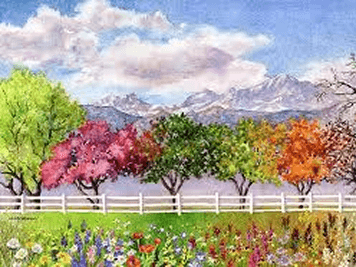
Following the Sun
I was born in a warm place, San Antonio, but I've lived in colder climates for most of my life.
Given my choice, I'd rather be a bit too warm than too cold. So when the opportunity to avoid snow presents itself, I'm in!
When Covid allowed us to travel again, we, my lovely wife Laurie and I, decided to go to Southern California for the winter. Two months turned into almost 6 and drew us into a lifestyle that has been most enjoyable.
Rather than endure winter weather, we move every two to 4 months from one warm place to another. Seattle is Laurie's "home" so we live there for the "best" three months of the year enjoying that narrow window of sunshine that presents itself from July through September.
December through March our home is in Palm Springs. Enjoying the mild winters in the sunny desert.
April through June and October/November give us the chance to explore other sunny places. Lately it's been San Miguel de Allende for two of those months, and this year October/November in Santa Fe. Next year Kyoto and Manhattan will join the party.
We don't consider ourselves continuous tourists, but rather periodic residents. When we move into a new location, we settle in to much the same routine as we had in the last home. We work, we shop, we cook we watch TV while we explore new restaurants, museums and develop new friendships.
We've been following the sun for about four years now and are quite content to look for joy out every new window.
About Those Mood Buttons
They are a noble idea, but should be taken not too literally.
Crafting the Perfect Line Break
At first glance, a line break in a poem might seem like a mere structural necessity—a place to pause, to carry the eye to the next line, to make the poem fit the page. But anyone who has ever written or read poetry with intention knows: the line break is not a pause. It is a choice . And more than that, it is an instrument—a subtle, powerful tool capable of shifting everything: tone, pace, emotion, and even meaning.
Related Posts
The Art of Listening to Silence
There's a particular quality to the silence that follows the last note of a song—a pregnant pause that seems to hold all the music that came before it. As poets, we spend so much time focusing on the words we put on the page that we sometimes forget about the spaces between them, the pauses that give our verses room to breathe.
Finding Poetry in Ordinary Moments
There is a quiet kind of alchemy that exists in the world. Not the sort that turns lead into gold or conjures storms from spells, but a subtler, more intimate kind—one that transforms the ordinary into something luminous, simply by the way we look at it. This is the kind of magic born from attention, presence, and wonder.